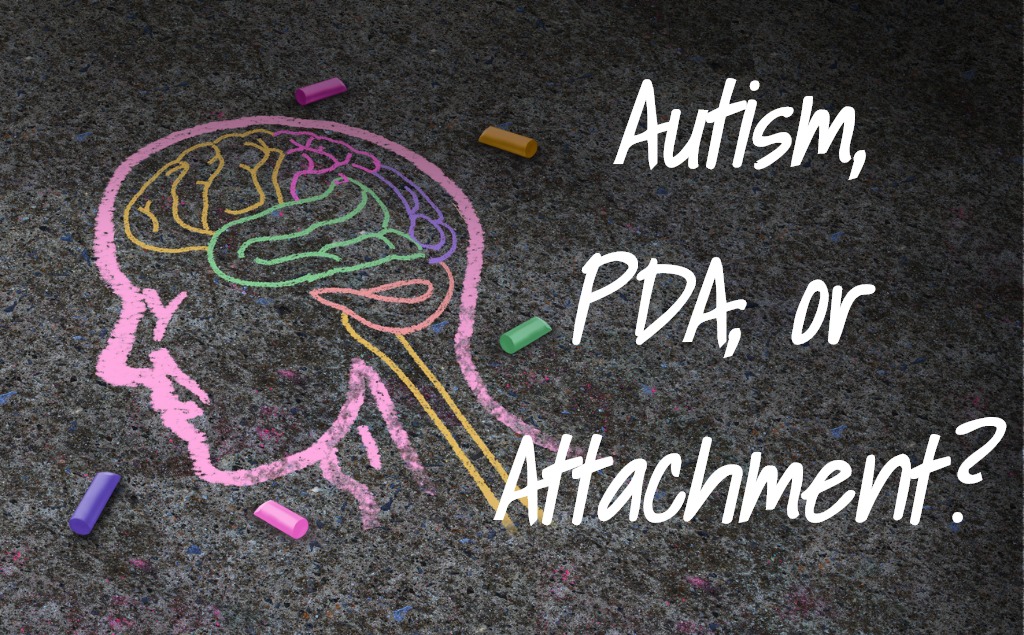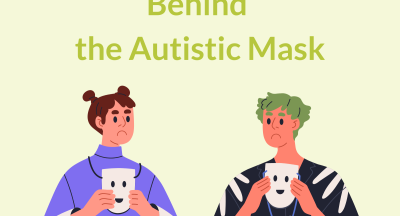
02/03/2018
by Dr Judy Eaton
Attachment disorder, Autism, Blog, Clinician related, Parenting related, PDA, Teaching related
15 comments
Last updated: 14th October 2022
In the course of my clinical work, I meet with many parents who are seeking an explanation for their child’s difficulties. I am also privileged to have been allowed to join a number of closed Facebook groups where parents share their experiences of bringing up children with Autism and PDA. Without exception, these parents have been strong, resilient and determined to achieve the best possible outcomes for their children. Many have had their parenting repeatedly questioned and report feeling ‘lonely, isolated and full of self-doubt’.
I wanted to write this particular article to try and clarify once and for all why many clinicians may consider the possibility of a child’s difficulties being due to an attachment disorder rather than Autism or PDA.
Brain development in babies starts in week four of gestation. The earliest part of the brain to develop is the brain-stem. This part of the brain deals with hunger, thirst and respiration. Next to develop is the mid-brain, which controls sensory processing, pain modulation and motor functions.
A little later what is known as the diencephalon (including the thalamus and hypothalamus) starts to develop. This part of the brain manages the ‘fight, flight or freeze’ response to threat or perceived threat. It also serves to process and relay sensory information.
Repeatedly being exposed to stressful situations leads to increased activation of the sympathetic nervous system.
The brain connections present at birth are fragile and still immature, and are highly dependent upon environmental factors. It is now known that any physical or psychological difficulties which occur pre- or shortly after birth can impact upon how the brain wires up. Repeatedly being exposed to stressful situations leads to increased activation of the sympathetic nervous system (the fight, flight or freeze response).
Chronic stress (and note the use of the word ‘chronic’) can lead to structural changes in the higher regions of the brain associated with emotion control, problem solving, and learning. An overactive ‘fight, flight or freeze’ response can also leave the child fearful and hypervigilant.
Children exposed to early ‘trauma’ often have digestive issues, sleep issues, sensory motor issues, hyperactivity, and are impulsive and irritable. They frequently display difficulties with emotional regulation and experience cognitive difficulties, such as in problem solving, planning and sequencing. They will also display cognitive rigidity and difficulties with play. They are also likely to experience ‘sensory over-responsivity’ and will react badly to touch, light and loud noises. They may also have problems with proprioception – knowing where their body is in space.
It is easy to see how this kind of difficulty – known as developmental trauma – and Autism and PDA can easily be confused.
However, a great deal of research and work has been carried out in an attempt to put together diagnostic criteria for, what is now being referred to as, Developmental Trauma Disorder, and it is vital to get the message out to clinicians who are assessing children that the proposed criteria are VERY clear. There must be evidence of exposure to ‘multiple or prolonged adverse events over a period of at least one year’. This means repeated and severedomestic violence; significant disruption of caregiving, repeated changes of caregiver, or exposure to severe and persistent emotional abuse.
There must be evidence of exposure to ‘multiple or prolonged adverse events over a period of at least one year’.
Some children do, sadly, experience this level of trauma – I have seen it many times in my own clinical work. Children who have had an unfortunate start in life do display behaviour that looks very much like Autism, and more particularly PDA. But, it IS different.
Many people, particularly clinicians and social workers, will have come across the Coventry Grid. The Coventry Grid was initially put together by a group of clinicians in Coventry CAMHS in the early 2000’s and subsequently discussed with the West Midlands Regional Autism Working Party (which I was a part of) before being written up by a Clinical Psychologist called Heather Moran and published in Good Autism Practice in 2010. It was revised in 2015, following Heather’s involvement with a group of Speech Therapists working in the youth justice system. It provided a good framework for distinguishing the types of behaviour seen in both Autism and attachment disorders.
A former colleague of mine, Dr Richard Soppitt, a Consultant Psychiatrist, and his colleagues, have recently published a questionnaire (also in Good Autism Practice) in 2017 which aims to take this work further.
As much of our clinical work focuses upon the PDA profile, we are currently working on a further version of this which will include PDA. We hope that this will help clinicians to unpick the differences more easily.
In the meantime, though, I would urge any parent who finds themselves in the situation of having to defend their parenting, or is faced with the suggestion that their child has an ‘Attachment Disorder’, to quote the extracts above from the proposed criteria for Developmental Trauma (because this is basically what is believed to lead to an attachment disorder), and ask for the evidence of ‘prolonged and severe’ difficulties. I am not a neurobiologist but given that an over active stress (fight, flight or freeze) response can develop following trauma, is it not entirely possible that some children with Autism, and more specifically PDA, may be born with a heightened stress response, without the trauma? The resulting sensory and behavioural difficulties may at first glance appear very similar until the Autism is explored further.
Of course, I am not saying that some children, with or without Autism and PDA, don’t have attachment DIFFICULTIES. This, for me, is different from an attachment DISORDER or developmental trauma. Life happens. Some parents struggle to manage their children for a variety of reasons; poverty, deprivation, poor role models of their own, depression and substance abuse being just a few. In these cases, there is no doubt that parenting courses and support to parent more effectively can be very helpful, and more importantly, often brings about a change in both the child’s behaviour and the relationship between the parents and the child. However, this for me highlights the need for clinicians who are working with families to adopt a more ‘systemic’ approach. By this I mean they take account of the whole family situation when arriving at the most appropriate treatment or assessment for a child who is experiencing difficulties. They need to listen to the parents. If the child’s behaviour is so challenging and so disruptive to the family, other children in the family are well behaved and well-adjusted and, most importantly, there is NO evidence of trauma, then sending them on a parenting course, or telling them they do not ‘understand their child’s needs’, is not very helpful.
UPDATE
September 2019. The first of a number of papers and journal articles has now been published, and this can be read on our Research and Journals page where we will be adding further published papers and journal articles, as they become available. The first article is an update of the aforementioned Coventry Grid, which now provides a good framework for distinguishing between the types of behaviour seen in Autism, attachment disorders, and Autism with the PDA profile.
Related Posts
Reflections on lockdown, and new ways of assessing
02/06/2020
Like many clinical teams who have traditionally been involved in face to face...
Autistic Burnout and Misdiagnosis: The Hidden Toll of Masking
14/07/2025
For many neurodivergent children and young people, navigating the social world...
Changing the scissors: A call for a truly neuro-inclusive world
21/07/2025
For too long, our collective approach to supporting neurodivergent children has...
Diagnostic concerns and revisions to the DSM 5
05/04/2022
Since the launch in March 2022 of the updated DSM-5 (now known as the DSM-5-TR),...




